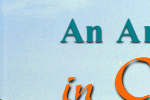 | 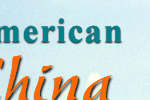 | 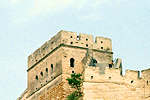 | 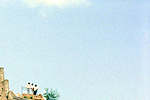 |
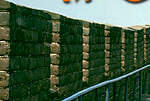 | 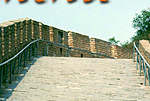 | 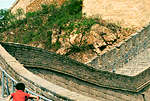 | 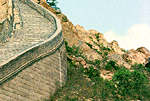 |
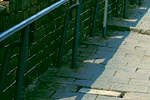 | 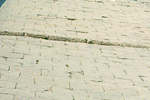 | 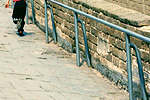 | 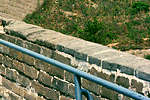 |
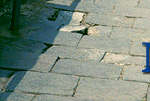 |  |  | 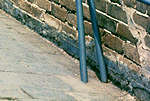 |
|
April 11, 2003 'Americans Like War, Huh?' |
|
Chinese coverage of the war in Iraq has been constant, repetitive and decidedly pro-peace if not anti-American. CCTV has developed into a network capable of broadcasting news from everywhere with the authority of CNN. In fact, like most news networks across the globe, CCTV has modeled their look, language, graphics, music etc. after the American model. During every break in the action – which mostly entails clips of British and American spokesmen detailing humanitarian aid and pinpoint strikes, CCTV 9, the English language version, provides a slideshow of crying Iraqi children and mothers, devastated landscapes, grim faced US Marines and officials with dramatic, sorrowful music. The panorama ends with the words, "Give Peace a Chance." There is nothing wrong with that at all. Any reader of any columns/editorials/stories featured on this site might agree with the general message sent by the CCTV reporters. Like many countries around the world, China paraded experts and features round-table debates criticizing the US military's performance: "Its already been 6/10/13 days and they haven't taken Baghdad yet." Not to mention the heroic resistance of the ragtag defenders of the cities and sands of Iraq. There was even talk of an eventual stalemate. Militarily, a stalemate is laughable. More likely is a version of Israel's adventures in Lebanon. Especially after Jay Garner and the Administration's close friends begin carving up Iraq's resources in the name of an Arab Marshall Plan. Chinese local newspapers and new broadcasts have delighted in painting the American desire for war as an extension of Empire. The four reasons for war given by Sichuan radio are: 1) control
of oil Round-table discussions have focused on the US unilateral approach, self-imposed isolation from the world, the European split and the need for the US to dominate the routes and sources of Middle East oil. At the same time, the effects of the war on China have been minimized. The price hike gets lower with each passing day that Baghdad remains "free" as does the percentage of oil imported from Iraq, now down to 1%. On the street, Chinese are extremely well informed – for the most part – and also very interested. Since the war, every conversation I get into seems to end up with Iraq as the main subject. The taxi drivers always ask where I'm from, when I answer they say: "Oh!, so you want to destroy Iraq, huh?" or "Americans like war, huh?" It gets old explaining the difference betwen individuals and nations; me and Bush. The Consulate in Chengdu has been heavily guarded since March 20th. Ironically, construction by Kellog, Brown and Root is reaching its critical stage, with huge concrete "flower pots" out front, a new surveillance post for the incoming Marines and a higher, thicker wall. With the everpresent blue, corrugated walls that Chinese hide every construction site with surrounding the Consulate, the only thing I see from my office across the street are the dozens of submachine gun armed Chinese policeman and the column of soldiers that march back and forth chanting and looking self-conscious. Very small protests have been staged in front of the Consulate, most notably an older woman who held up a sign demanding "peace." The police didn't really know what to do right away, as she was alone and obviously harmless. Eventually, they took her downtown and asked her dozens of questions. Since her demonstration did not constitute a threat to Hu and Friends, she was let go with a warning. In Beijing, the police harassed protesters – first by changing the time of their alloted time at the last minute, then by confining them to the outskirts and keeping them away from the populace. Chinese government officials are as scared of people getting together as they are of SARS robbing them of their precious quarterly FDI growth. So, lies are told about the sickness and mass gatherings are hindered. The human rights report published by the US also made headlines, via a stiff rebuttal. Statistics on American crime and murder rates, police brutality and single mothers were shown in between "Give Peace a Chance" slideshows. The statistics concluded with a "US double standards concerning human rights increases isolation." Again, this message differs but slightly from many messages coming from inside and outside of the US. The most important development of this war is the progress made by Chinese news agenices – people on the ground in Iraq, on the spot reports, feeds from the White House and the UN – and the response of the Chinese people. When I mentioned to my roommate (a Chinese) that a letter from Osama to the Iraqis was circulating, he demanded to know where, when and what the letter contained. He knows how many miles the Marines are from Baghdad, he knows about Halliburton and Cheney, he knows about supply lines and Patriots and he is convinced that this war heralds the end of American hegemony and the beginning of a new (presumably East Asian) dynasty to be built on the ashes. –Sascha Matuszak
Please Support Antiwar.comSend contributions to Antiwar.com or
Contribute Via our Secure Server Your contributions are now tax-deductible
|
Sascha Matuszak
is a teacher living and working in China. His articles have appeared
in the South China Morning Post, the Minnesota Daily,
and elsewhere. His exclusive Antiwar.com column (usually) appears
Fridays. Archived columns 'Americans
Like War, Huh?' A
Beautiful Morning for a War Soft
Power Moves Abroad The
Safest Place in the World Smiles
and Nods and Handouts China:
Straddling the Fence Just Right Merry
Christmas from China Don't
Believe the Hype Jiang's
Theory Is a Smokescreen 'We
Make You Play Bad Card' The
Future of East-West Rapprochement Tiananmen's
Legacy: The Forgotten Rebellion Deciphering
the Chinese Smile Why
China Can Disregard US Anger Arming
the World: What the US Fears 1.3
Billion Problems For China China's
New Post-9/11 Status
Sweep 'Em Off the Streets
Chinese Embrace Progress China's
Afghan Agenda New
War May Reveal New Superpower, Part II New
War May Reveal New Superpower A
Chance for a New Friendship? Cheating
as a Way of Life China's
Internet Generation Free
Markets or Supermarkets Sailing
Towards World Significance China's
Youth Revolution |
